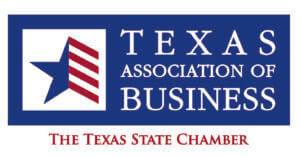Protect USMCA, Tariff-Free Trade with North American Trade Partners
Over the past several weeks, we’ve witnessed significant developments surrounding ongoing tariff negotiations as part of the Trump administration’s efforts to re-orient global trade and raise revenue. Shortly before the August 1st deadline for the resumption of “reciprocal” tariffs on our major trade partners, President Trump announced a 90-day extension of negotiations with our largest trading partner – Mexico – while maintaining tariff-free trade for U.S.-Mexico-Canada Agreement (USMCA)-compliant goods.
While such temporary reprieves are encouraging and help avoid an immediate economic shock, it is critical that, in any ongoing negotiations with our North American trade partners, we not only protect the roughly 85% of goods that are exempt from tariffs under the USMCA, but actively work to expand tariff-free products in North America. For Texas in particular – the world’s 8th largest economy, a top destination for foreign direct investment (FDI), and top exporting state for more than two decades – the stakes are high, as no U.S. state has more to gain or lose from the outcome of ongoing trade negotiations.
For President Trump to ‘stick the landing’ and effectively establish a new global commercial order in our nation’s favor, we must bolster the North American trading bloc.
The USMCA is the best trade deal in history (negotiated by the first Trump Administration), and the results speak for themselves: Since its implementation, Mexico and Canada have overtaken China as the top trading partners for both the U.S. and Texas. In 2024 alone, the two-way trade between the U.S. and Mexico garnered $840 billion, with Texas accounting for a total of $281 billion. The agreement has fueled a surge in regional manufacturing, strengthened supply chains, and delivered more jobs to Texas workers.
Recently, the Dallas Federal Reserve published a new report showing that Texas manufacturing is expanding and reached a three-year high in July, exceeding the expectations of many analysts. As I told KTRH News Radio in Houston shortly after the report:
“It just reinforces that Texas is the jobs juggernaut of America, and that’s doubly so when it comes to advanced manufacturing…Texas is month after month, year after year, outperforming the nation in the industries of tomorrow like space, semiconductors and now AI.”
To capitalize on this momentum, it is in Texas’ best interest to continue to allow for USMCA-compliant products – those eligible for tariff-free entry – to be as broad as possible. A strong North American manufacturing bloc gives us the competitive economic edge we need against China and the rest of the world. When we erect barriers with our allies, we’re only harming ourselves.
Furthermore, we need to ensure that the escalating tariff tensions with Mexico and Canada do not undermine the “One Big Beautiful Bill” Act (OBBBA) – a landmark law that the National Association of Manufacturers (NAM) has highly praised as being a manufacturing bill that will supercharge America’s economy. The central promise of the OBBBA – designed to position the U.S. as the most attractive destination for global investment and production – is at risk if we simultaneously make it harder to do business in and across North America, especially with our supply chains more integrated than ever before. We also need to ensure such tensions do not counteract the Trump administration’s massive deregulatory and permitting reform, and the masterpiece AI Action Plan that the Trump administration recently released with the goal of ensuring more of our international allies adopt the U.S. AI tech stack.
Tariffs are at the highest levels they have been in over 100 years – impacting consumers and small businesses, which make up 99% of all businesses and account for about half of all jobs here in the Lone Star State. The U.S. Chamber of Commerce’s recommendations to shield small businesses from the impacts of tariffs are right on target, promoting innovation and helping to curb the impacts of inflation. NAM has also made clear that, since more than half of U.S. imports are manufacturing inputs, tariff negotiators need to focus on adopting ‘zero-for-zero’ tariffs for American-made products in our trading partners’ markets – encouraging more products to be made in the U.S.A.
At the Texas Association of Business (TAB), we’ll continue to advocate for policies that keep Texas competitive, open for business, and globally connected. The stakes are high, but the path forward is clear: protecting and expanding a tariff-free North American trade is the best way to ensure Texas and the U.S. remain economically dominant on the world stage.
–Glenn Hamer, President & CEO, Texas Association of Business
###
